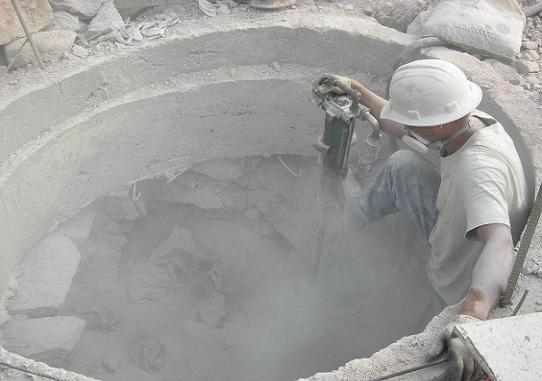The massive explosion that killed 75 workers and injured 180 others at an automotive components factory in Kunshan on Saturday highlighted once again the extreme dangers of working in a high-dust environment and the persistent failure of employers in China to adequately protect their employees.
In the wake of the tragedy, investigators and employees at Zhongrong Metal Products both described how dust was allowed to build up in the poorly ventilated polishing workshop, creating a suffocating and eventually lethal environment for the workers on the production line.
“It was like a sauna, and dust was everywhere from the ground to the air. Nobody told us how to deal with the hazards of dust,” Li Xiang, a 24-year-old former employee, told the Wall Street Journal.
Luckily, Li left Zhongrong after just six months because it was a “horrible and tiring job,” but those workers who stayed at the factory for any longer risked not only an explosion but also long-term, even terminal damage to their lungs (pneumoconiosis) caused by the inhalation of dust particles.
The China Daily talked to one former Zhongrong employee who had already contracted pneumoconiosis after working at the company for eight years from 2004 to 2012. Song Changxing was eventually compensated 80,000 yuan by Zhongrong for his occupational illness (more than most workers get) but he had already spent 200,000 yuan on medication alone since contracting the disease, the newspaper said.
There are already an estimated six million workers with pneumoconiosis in China and yet tens of thousands of new cases emerge every year because employers like Zhongrong still refuse to take basic precautions to prevent the build-up of dust or provide regular health checks for employees, as they are required to do by law.
"The management is more mindful of profit than workers' safety and health," said Chen Ming, a current employee at the factory. “The company has never organized any health examinations for its employees.”
And even if employers do arrange medical checks for the workers, they can easily conceal the results because the hospital will often only disclose the results to the employer rather than the employees affected. This was the case with the 34 shipyard workers in Guangzhou who sued both their employer, CSSC Guangzhou Longxue Shipbuilding Co. Ltd, and its affiliated hospital for concealing test results that would have revealed the early stages of pneumoconiosis.
The plaintiffs worked primarily as welders in cramped, poorly ventilated ship’s bulkheads and were covered in thick black soot within just a few hours of starting their shift. The workers were given flimsy face marks which provided next to protection from the dust, as revealed by a Guangzhou television news program last year.
Construction workers all over China are likewise continually at risk of dust inhalation, especially those engaged in drilling or blasting bedrock while laying foundations, see photo below of construction worker in Shenzhen.
It is a relatively straightforward process to dampen down dust on construction sites and provide workers with proper protection but most construction workers are hired by labour contractors who accept no responsibility for worksite safety, while the main contactor claims to have no responsibility for the workers.
It seems like the system is stacked against workers in high-dust environments: Local government officials don’t enforce the rules, and employers can easily evade their responsibilities or even collude with hospitals to hide test results that would alert workers to the dangers.
It is precisely for this reason, that a group of labour activists is demanding in an open letter that workers be given the right to monitor and enforce workplace safety. Dai Chun, associate professor at a Hunan trade union school and one of the letter’s authors, explained that problems with work safety were part of a wider failure to incorporate workers' rights into China’s economic development model. Safety monitoring and enforcement has up till now been left in the hands of employers and local governments but both had clearly failed in this task, Dai said.

